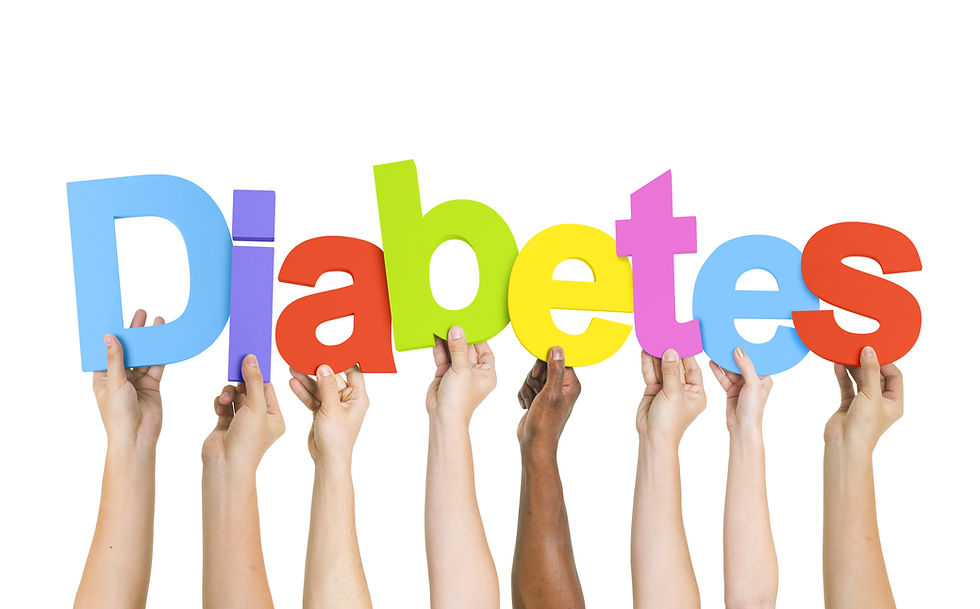IT IS NOW AVAILABLE!!!!! New Zealand Hops Flower Extract? A Natural GLP-1 Agonist for Weight Loss. An Orally Available Alternative to Wegovy, Ozempic and Zepbound
- David S. Klein, MD FACA FACPM

- Sep 29, 2025
- 4 min read
Updated: Oct 23, 2025
Taken Orally alone, with GLP-1 injectables, or After Discontinuing the Injectables.
Why GLP-1 matters—without injections
GLP-1 is a gut hormone your body releases after you eat. It helps you feel full, slows stomach emptying, and supports healthy blood-sugar responses. That’s exactly why prescription GLP-1 medicines (like semaglutide) help people lose weight—they amplify a signal your gut already makes. Certain bitter plant compounds can nudge that same pathway—on a much gentler scale—by activating “bitter taste” sensors in the stomach and small intestine, prompting a rise in appetite-taming hormones such as GLP-1, CCK, and PYY. Frontiers+1
Where New Zealand hops extract fits
Scientists in New Zealand screened plant extracts and landed on a specific bitter hops extract. In controlled clinical settings, capsule delivery to the upper gut reduced hunger and spontaneous calorie intake, while boosting gut peptides linked to satiety. Importantly, these are food-grade botanicals—not drugs—so the effects are milder, but they appear within hours of dosing. PubMed+1
What the human studies show (plain English)
During fasting (men): In a randomized, placebo-controlled trial, men taking the hops extract during a 24-hour water-only fast reported lower hunger across the toughest window of the fast. PMC
Meal-time effects (men): In a crossover study, targeted delivery of the extract reduced ad-libitum energy intake by ~900–950 kJ (about 215–230 kcal) and raised post-meal GLP-1, CCK, and PYY, consistent with a “bitter brake” on eating. American Journal of Clinical Nutrition
During fasting (women): A follow-up, randomized crossover trial in women found the extract reduced hunger and food cravings and lowered rebound eating after the fast. PMC
Across studies, effects show up within hours and track with measured increases in satiety hormones—exactly what we’d predict if intestinal bitter receptors are doing the signaling work. PubMed
What this could mean for weight management
Think of GLP-1–active hops extract as a behavioral assist: it won’t replace diet quality, sleep, activity, and (for some) medications—but it can make adherence easier by taking the edge off hunger and cravings. In trials, people ate less when given free access to food, and reported less drive to eat during demanding protocols like a 24-hour fast. Over weeks and months, small, repeated reductions in intake can compound. Mechanistic reviews back this model: activating intestinal bitter receptors can raise GLP-1 and related peptides, slow gastric emptying, and blunt appetite. MDPI+1
How people typically use it
In studies, capsules were timed to deliver bitter compounds to the stomach or duodenum before the most challenging eating windows (e.g., prior to a meal or during a fast). Brands differ, but research-grade protocols generally used standardized bitter acid doses in the 100–250 mg range, once or twice on the study day. (Use product directions; standardization matters.) PMC
In this practice, I start with a 1/2 dosage of 125 mg, taken 1 hour before meals. It is followed by a 250 mg taken 1 hour before lunch, and 1 hour before dinner.
Safety, tolerability, and who should be cautious
Trials reported mild, transient GI symptoms (e.g., cramping or loose stools) in a minority of participants—more often with gastric-targeted dosing. Hops naturally contain phytoestrogens; individuals with estrogen-sensitive conditions should discuss use with their clinician. Avoid in pregnancy and lactation due to limited data. Because hops can be calming, caution with sedatives or alcohol. And remember: beer is not a substitute—alcohol adds calories and changes metabolic effects. ResearchGate
Bottom line
A standardized New Zealand hops extract appears to gently activate your own GLP-1 pathway and related satiety signals, helping reduce hunger, cravings, and spontaneous calorie intake—especially around difficult windows like fasting or buffet-style meals. It’s not a drug and won’t replicate pharmaceutical-level weight loss, but as part of a comprehensive plan, the evidence suggests it can be a practical tool.
References (with links)
Walker EG, Lo KR, Tham S, et al. New Zealand bitter hops extract reduces hunger during a 24 h water-only fast. Nutrients. 2019;11(11):2754. https://www.ncbi.nlm.nih.gov/pmc/articles/PMC6893682/ PMC
Walker EG, Lo KR, Pahl MC, et al. An extract of hops (Humulus lupulus L.) modulates gut peptide hormone secretion and reduces energy intake in healthy-weight men: a randomized, crossover clinical trial. Am J Clin Nutr. 2022;115(3):925-940. https://pubmed.ncbi.nlm.nih.gov/35102364/ PubMed
Walker E, Lo K, Gopal P. Gastrointestinal delivery of bitter hop extract reduces appetite and food cravings in healthy adult women undergoing acute fasting. Obesity Pillars. 2024;11:100117. https://pubmed.ncbi.nlm.nih.gov/39071168/ (Open access: https://www.ncbi.nlm.nih.gov/pmc/articles/PMC11279280/) PubMed+1
Xie C, Wang X, Young RL, et al. Role of intestinal bitter sensing in enteroendocrine hormone secretion and metabolic control. Front Endocrinol (Lausanne). 2018;9:576. https://www.frontiersin.org/articles/10.3389/fendo.2018.00576/full Frontiers
Kok BP, Galmozzi A, Littlejohn NK, et al. Intestinal bitter taste receptor activation alters hormone secretion and glucose homeostasis. (Mechanistic overview). PMC article. https://www.ncbi.nlm.nih.gov/pmc/articles/PMC6158035/ PMC
Rezaie P, Hu H, Singh M, et al. Effects of bitter substances on GI function, energy intake, gastric emptying and blood glucose in humans. Nutrients. 2021;13(4):1317. https://www.mdpi.com/2072-6643/13/4/1317 MDPI
Bitarafan V, Wu T, Page AJ, et al. Effects of intraduodenal or intragastric administration of a bitter hop extract on gastrointestinal functions and energy intake in healthy men. Appetite. 2023;181:106444. https://www.sciencedirect.com/science/article/pii/S0195666323000430 ScienceDirect
Barrea L, Annunziata G, Muscogiuri G, et al. Could hop-derived bitter compounds improve glucose homeostasis by stimulating GLP-1 secretion? Endocr Metab Immune Disord Drug Targets. 2017;17(2):77-86. https://pubmed.ncbi.nlm.nih.gov/28910546/ PubMed
Trius-Soler M, Mars M, Smeets PAM, et al. Bitter taste receptors: key targets to understand metabolic effects of polyphenols. Biochim Biophys Acta Mol Cell Res. 2024;1861(10):119653. https://www.sciencedirect.com/science/article/pii/S0006295224001758 ScienceDirect
Verbeure W, Depoortere I. The endocrine effects of bitter tastant administration in the human GI tract. Am J Physiol Endocrinol Metab. 2021;320(4):E716-E727. https://journals.physiology.org/doi/abs/10.1152/ajpendo.00636.2020 Physiology Journals
David S. Klein, MD, FACA, FACPM
1917 Boothe Circle, Suite 171
Longwood, Florida 32750
Tel: 407-679-3337
Fax: 407-678-7246

















.webp)